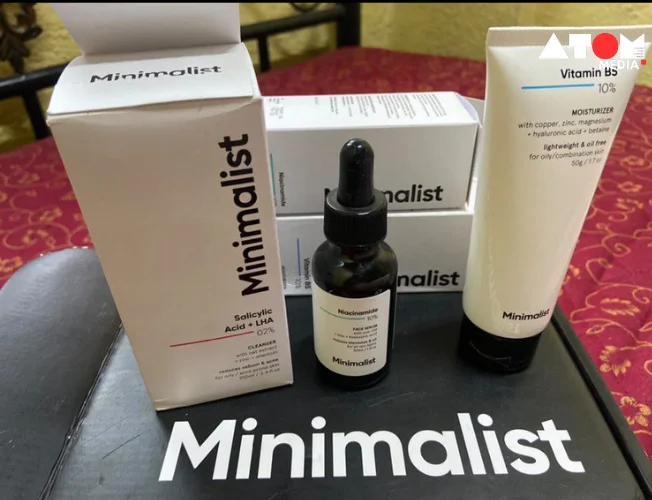The COVID-19 pandemic undeniably impacted the global economy, yet it also witnessed a surge in consumer interest for wellness products. This trend particularly benefited the beauty and personal care (BPC) industry, with a growing focus on natural and effective ingredients.
D2C Boom in India’s BPC Market
India’s digital-first, direct-to-consumer (D2C) BPC market is experiencing significant growth, driven by consumers seeking clean and natural beauty products. This segment, estimated at over $5 billion in 2023, is projected to reach a staggering $28 billion by 2030.
The market is crowded with established players like Mamaearth and SUGAR Cosmetics, alongside numerous up-and-coming brands like Wow Skin Science, Plum, mCaffeine, and Minimalist. These D2C players compete not only with each other but also with local and global giants like Hindustan Unilever, Himalaya, L’Oréal, and P&G for a share of the ever-expanding BPC market, expected to touch $30 billion by 2027.
Minimalist’s Rise to Prominence
Despite fierce competition, Jaipur-based startup Minimalist, founded by siblings Mohit and Rahul Yadav, has carved a niche for itself. The brand focuses on clinically tested and highly effective skincare, haircare, and body care products formulated with active ingredients. Minimalist claims to be one of the fastest-growing D2C brands in India.
“We launched in October 2020 and achieved a revenue of INR 100 crore within eight months,” says Mohit Yadav. “Minimalist was profitable from the very beginning, even with our first month’s sales of INR 1 crore in products. We’ve maintained profitability ever since, achieving a positive EBITDA (earnings before interest, taxes, depreciation, and amortization) even in the early stages, unlike most companies that incur negative EBITDA initially.”
Minimalist’s success story is further bolstered by a Series A funding round of INR 110 crore ($15 million) led by Peak XV Partners (formerly Sequoia Capital India) in July 2021, with participation from Unilever Ventures. The brand has also expanded internationally through Minimalist Global, reaching customers in the US, UK, Middle East, and Southeast Asia.
The company’s revenue grew significantly in FY23, reaching INR 184 crore, a 70.37% increase from INR 108 crore in the previous year. However, net profit witnessed a decline of 68.7%, dropping from INR 16 crore in FY22 to INR 5 crore in FY23. Mohit attributes this decrease to the company’s ongoing team building and expansion efforts, with the workforce growing from 80 to 650 employees within two years.
Building on Transparency and Efficacy
Unlike many beauty brands with intriguing origin stories, the Yadav brothers entered the BPC space not to address a personal struggle, but rather to continue working together. Their entrepreneurial journey began in 2008 when Rahul, then a student at IIT-Roorkee, launched a fashion startup called Scopial. Mohit, on the other hand, was working at Credit Suisse but faced a relocation opportunity that could have separated the brothers.
“If I had taken that job, things would be very different today,” Mohit reflects. “We both wanted to work together, so in 2010, I joined the entrepreneurial world. We rebranded Scopial Fashions as MangoStreet, an e-commerce platform for branded kidswear in India.”
MangoStreet was eventually acquired by Hushbabies in 2012, marking a successful exit for the Yadav brothers. They then moved on to CarDekho.com, a leading online platform for buying and selling cars. After spending several years with CarDekho, both in India and Singapore, they felt the urge to venture out on their own again in 2017.
Leveraging Rahul’s background in chemical engineering and his network of researchers and developers, the brothers entered the BPC space with Freewill in 2018. Freewill offered a unique concept: customized hair care solutions based on individual customer needs, lifestyle, and climate.
While Freewill aimed to disrupt the market with personalized products, the founders faced challenges with scalability and offline retail expansion. Additionally, marketing efforts proved to be resource-intensive, leading them to reassess their approach.
“We realized that building a successful brand required two key elements: offering the right products and complete transparency with our customers,” says Mohit. “This philosophy formed the foundation for Minimalist.”
From Freewill to Minimalist: A Focus on Active Ingredients
Freewill eventually ceased operations, but the learnings paved the way for Minimalist’
Read more: Marketing News, Advertising News, PR and Finance News, Digital News





